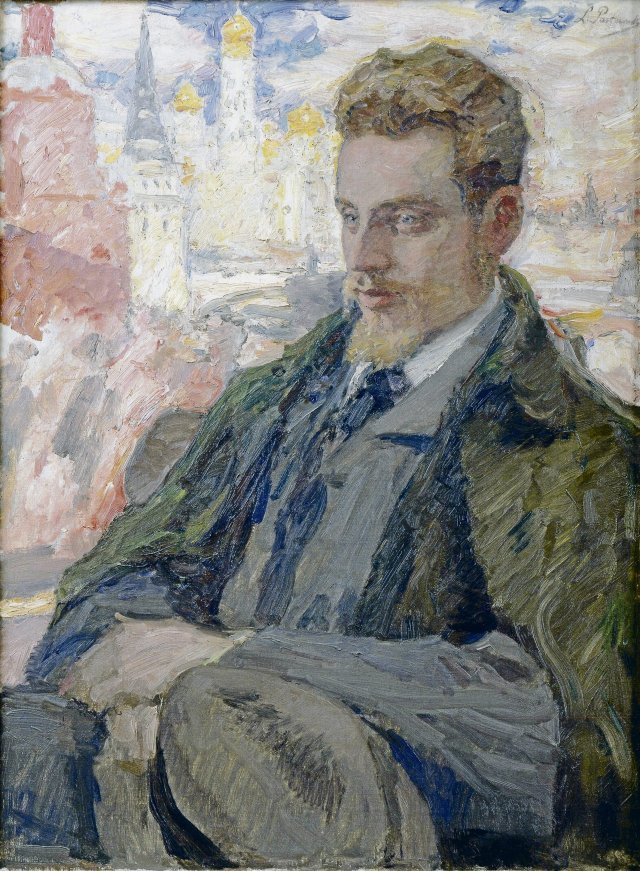Portrait of Rainer Maria Rilke, around 1928; Artist unknown
Foto: Fine Art Images/Heritage Images/IMAGO
He is loved, adored and shunned. Some weave wreaths for him, others ignore him or never tire of shaking his pedestal. It’s always been that way. For Harry Graf Kessler he was the “salon lion,” Thomas Mann spoke of “noble behavior” and “sanctimonious affectation,” and Peter Rühmkorf said: “I hold him in high esteem, but I can’t stand him.”
This sentence about Rainer Maria Rilke, oscillating between praise and defense, documents the mildest form of criticism. Karl Krolow, who in 1975 combined his plea for the centenarian with a thank you to the Suhrkamp publishing house for his unwavering loyalty to his regular author, was a completely different story. Rilke, long written off by German scholars, critics and readers, was for many too bourgeois, old-fashioned and out of touch with the times.
The gods back then were called Brecht and Benjamin. It took a while, then biographers spoke up to finally identify him, first Wolfgang Leppmann, then the Englishman Donald A. Prater and, in two powerful volumes, Ralph Freedman, who lives in the USA, and finally Fritz J. Raddatz, who in 2009 created a spirited portrait of Rilke in a slim, spirited essay.
Gunnar Decker, one of the best authors in this profession, who has already proven his reputation as a brilliant biographer several times with books about Francis of Assisi, van Gogh, Fühmann, Georg Heym, Trakl, Hesse, Benn and Barlach, is now also joining this series presented. He had already approached the poet years ago with a captivating study of Rilke and women; now, “full of respect for poetry, which in some moments approaches perfect linguistic expression” and far from any transfiguration, he is also drafting the entire life story .
Decker’s Rilke is a man who never finds peace, raised by a sanctimonious mother who dresses him as a girl, always surrounded by women who sit reverently at his feet, who encourage and support him (and to whom he dedicates some of his most beautiful poems ), a precise worker and highly artificial poet who, despite constant money worries, manages to live a comfortable life as a permanent guest in castles, but also maintains an eye for poverty, for the lonely, outcasts and despised people, whom he describes in a moving book in 1910. At times, Decker rightly writes, “The Notes of Malte Laurids Brigge” are “among the most intense prose” known in German literature of the 20th century. This narrative miracle, which was uncomprehendingly rejected by contemporary critics and showered with scorn and ridicule, preceded all books that explored the existence of modern man and, in a kaleidoscope of images and scenes, in a unique way his danger, his existential distress and his loneliness described.
Decker is careful not to burden his biography with analyzes of his works, but he repeatedly acknowledges Rilke’s artistic achievements, in “Malte” as well as in the “Duino Elegies” or the “Sonnets to Orpheus”. He shows the poet struggling for his poetry and the observer of the passage of time, the eternal life in hotels and magnificent properties, his aloneness, which he loved and which also got on his nerves, and how he finally cultivated the monasticism and drove poetry further into the hermetic. He tells the story of the difficult relationship with his mother, the relationship with the married Lou Andreas Salomé, both lover and mother, the marriage with the sculptor Clara Westhoff, which also failed as an artistic partnership, and the self-staging as a poor poet who managed his life with the help of admiring women .
In the end, the most important one, who finds her appropriate place here, was Nanny Wunderly-Volkart, the simple, generous and strong protector who did not turn down even extravagant requests from all the art-loving women who gave him their affection and whom he mercilessly defended has been the most loyal helper in recent years and days. With the “Duino Elegies,” which were finished at the beginning of 1922 and once again put him in a state of high spirits, Rilke had already said goodbye to the world that was becoming more and more unbearable for him. Because he deeply hated militant Germany (“Really, there is nothing I would be more passionately opposed to than this ‘Reich'”), he moved to Switzerland immediately after the First World War. There, in Val-Mont, suffering and ill for a long time, he died at the end of 1926 at the age of less than 51.
Decker, stylistically admirable again, describes this existence, the life for work, which had to be resisted from the progressive physical deterioration, with impressive intensity. He sees the poet as a modern mystic, seeker of God and language magician, does not overlook the captivating letter writer, touches on his political statements and does not hide Rilke’s bizarre qualities.
This biography doesn’t want to (and can’t) solve all the mysteries, but it makes you want to get involved with this unique poet.
Gunnar Decker: Rilke. The distant magician. Settlers, 608 pages, hardcover, €36.
#ndstays – Get active and order a promotional package

Regardless of whether it is pubs, cafés, festivals or other meeting places – we want to become more visible and reach everyone who values independent journalism with an attitude. We have put together a campaign package with stickers, flyers, posters and buttons that you can use to get active and support your newspaper.
To the promotional package
judi bola judi bola sbobet88 demo slot x500
